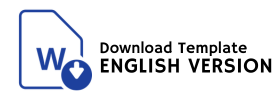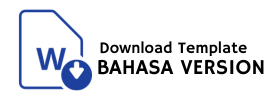Aspek Hukum dan Farmasi dalam Regulasi Real-World Evidence (RWE) untuk Persetujuan Obat: Tantangan Implementasi di Indonesia
DOI:
https://doi.org/10.38035/dhps.v2i4.1843Keywords:
Real-World Evidence, Regulasi obat, Hukum farmasi, Sains regulatori, Data kesehatanAbstract
Penelitian ini mengkaji aspek hukum dan farmasi dalam implementasi Real-World Evidence (RWE) pada regulasi persetujuan obat di Indonesia. Seiring kerangka regulasi global yang semakin menerima RWE berdampingan dengan uji klinis tradisional, Indonesia menghadapi tantangan signifikan dalam mengadopsi pendekatan ini. Melalui penelitian hukum doktrinal dan analisis kualitatif, studi ini mengidentifikasi empat tantangan utama: kesenjangan regulasi dalam kerangka persetujuan obat Indonesia yang tidak secara eksplisit mengakui RWE; infrastruktur data kesehatan yang tidak memadai; kapasitas sumber daya manusia yang terbatas dalam metodologi RWE; serta persoalan etika dan perlindungan data. Penelitian ini mengusulkan peta jalan implementasi bertahap meliputi pengembangan pedoman RWE spesifik, kemajuan infrastruktur, pengembangan kapasitas profesional, dan harmonisasi hukum antara regulasi obat dan kerangka perlindungan data. Temuan menunjukkan bahwa kolaborasi multi-pemangku kepentingan strategis antara BPOM, Kementerian Kesehatan, fasilitas kesehatan, industri farmasi, dan institusi akademik sangat penting untuk keberhasilan implementasi RWE, yang berpotensi meningkatkan akses obat sambil mempertahankan standar keamanan dalam sistem kesehatan Indonesia.
References
Anglemyer, A., Horvath, H. T., & Bero, L. (2014). Healthcare outcomes assessed with observational study designs compared with those assessed in randomized trials. Cochrane Database of Systematic Reviews, (4), MR000034. https://doi.org/10.1002/14651858.MR000034.pub2
Badan Pengawas Obat dan Makanan. (2022). Peraturan Badan Pengawas Obat dan Makanan Nomor 24 Tahun 2022 tentang Kriteria dan Tata Laksana Registrasi Obat. Jakarta: BPOM RI.
Berger, M. L., Sox, H., Willke, R. J., Brixner, D. L., Eichler, H. G., Goettsch, W., Madigan, D., Makady, A., Schneeweiss, S., Tarricone, R., & Wang, S. V. (2017). Good practices for real?world data studies of treatment and/or comparative effectiveness: Recommendations from the joint ISPOR?ISPE Special Task Force on real?world evidence in health care decision making. Pharmacoepidemiology and Drug Safety, 26(9), 1033-1039. https://doi.org/10.1002/pds.4297
Cave, A., Kurz, X., & Arlett, P. (2019). Real?world data for regulatory decision making: Challenges and possible solutions for Europe. Clinical Pharmacology & Therapeutics, 106(1), 36-39. https://doi.org/10.1002/cpt.1426
Duke-NUS Centre of Regulatory Excellence. (2021). Advancing the use of real-world evidence for regulatory decision-making in Asia: Summary of workshop proceedings. Singapore: Duke-NUS Medical School.
European Medicines Agency. (2020). HMA-EMA Joint Big Data Taskforce Phase II Report: 'Evolving Data-Driven Regulation'. Amsterdam: EMA.
FDA. (2018). Framework for FDA's Real-World Evidence Program. Silver Spring, MD: U.S. Food and Drug Administration.
Franklin, J. M., & Schneeweiss, S. (2017). When and how can real world data analyses substitute for randomized controlled trials? Clinical Pharmacology & Therapeutics, 102(6), 924-933. https://doi.org/10.1002/cpt.857
Garrison, L. P., Neumann, P. J., Erickson, P., Marshall, D., & Mullins, C. D. (2007). Using real?world data for coverage and payment decisions: The ISPOR real?world data task force report. Value in Health, 10(5), 326-335. https://doi.org/10.1111/j.1524-4733.2007.00186.x
Jeon, Y. W., Shin, J. Y., & Park, M. H. (2021). Current status and future direction of real-world evidence in Korea from regulatory perspective. Korean Journal of Clinical Pharmacy, 31(1), 1-9. https://doi.org/10.24304/kjcp.2021.31.1.1
Juhaeri, J. (2021). Real-world evidence for health technology assessments in Southeast Asia: Opportunities and challenges. International Journal of Technology Assessment in Health Care, 37(1), e71. https://doi.org/10.1017/S0266462321000374
Kementerian Kesehatan RI. (2023). Pedoman Penerapan SatuSehat untuk Fasilitas Kesehatan. Jakarta: Kementerian Kesehatan Republik Indonesia.
Khosla, S., White, R., Medina, J., Ouwens, M., Emmas, C., Koder, T., Male, G., & Leonard, S. (2018). Real world evidence (RWE) - a disruptive innovation or the quiet evolution of medical evidence generation? F1000Research, 7, 111. https://doi.org/10.12688/f1000research.13585.1
Lauer, M. S., & D'Agostino, R. B. (2013). The randomized registry trial—the next disruptive technology in clinical research? New England Journal of Medicine, 369(17), 1579-1581. https://doi.org/10.1056/NEJMp1310102
Lexchin, J., Bero, L. A., Djulbegovic, B., & Clark, O. (2003). Pharmaceutical industry sponsorship and research outcome and quality: Systematic review. BMJ, 326(7400), 1167-1170. https://doi.org/10.1136/bmj.326.7400.1167
Makady, A., de Boer, A., Hillege, H., Klungel, O., & Goettsch, W. (2017). What is real-world data? A review of definitions based on literature and stakeholder interviews. Value in Health, 20(7), 858-865. https://doi.org/10.1016/j.jval.2017.03.008
Mishra, P., Florian, J., Peter, J., Vainorius, M., Stein, C. M., Acosta, A. P., Charlab, R., Eydelman, M., Mathis, M., & Pacanowski, M. (2021). Public-private partnership to generate evidence for regulatory submissions from real-world settings. Clinical Pharmacology & Therapeutics, 110(1), 19-22. https://doi.org/10.1002/cpt.2198
Murti, B. (2018). Tantangan dan peluang penelitian observasional serta panduan bagi peneliti. Jurnal Epidemiologi Kesehatan Indonesia, 2(1), 1-6. https://doi.org/10.7454/epidkes.v2i1.1801
Pemerintah Republik Indonesia. (2022). Undang-Undang Nomor 27 Tahun 2022 tentang Perlindungan Data Pribadi. Jakarta: Sekretariat Negara.
PMDA. (2021). Basic principles on utilization of patient registry for Drug Development. Tokyo: Pharmaceuticals and Medical Devices Agency.
Rizka, A., & Setiawati, A. (2020). Perkembangan penggunaan real-world evidence dalam pengambilan keputusan regulatori obat. Majalah Farmasetika, 5(6), 279-288. https://doi.org/10.24198/mfarmasetika.v5i6.29584
Sherman, R. E., Anderson, S. A., Dal Pan, G. J., Gray, G. W., Gross, T., Hunter, N. L., LaVange, L., Marinac-Dabic, D., Marks, P. W., Robb, M. A., & Shuren, J. (2016). Real-world evidence—what is it and what can it tell us? New England Journal of Medicine, 375(23), 2293-2297. https://doi.org/10.1056/NEJMsb1609216
Suwantika, A. A., Zakiyah, N., Lestari, K., & Abdulah, R. (2020). Advancing pharmaceutical care in Indonesia: Overview of BPOM's regulatory framework and potential areas for improvement. Journal of Pharmaceutical Policy and Practice, 13, 33. https://doi.org/10.1186/s40545-020-00235-1
Trifirò, G., Gini, R., Barone-Adesi, F., Beghi, E., Cantarutti, A., Capuano, A., Carnovale, C., Clavenna, A., Ientile, V., Kirchmayer, U., Lapi, F., Lucenteforte, E., Piccinni, C., Scondotto, S., Sultana, J., Tari, M., Virgili, G., Berni, E., Corrao, G., ... & Sultana, J. (2019). The role of European healthcare databases for post-marketing drug safety surveillance: Results from the CARING project. Drug Safety, 42(10), 1287-1300. https://doi.org/10.1007/s40264-019-00835-0
World Health Organization. (2021). WHO Guideline: Recommendations on Digital Interventions for Health System Strengthening. Geneva: WHO.
Yuan, H., Ali, M. S., Brouwer, E. S., Girman, C. J., Guo, J. J., Lund, J. L., Patorno, E., Slaughter, J. L., Wen, X., & Bennett, D. (2018). Real-world evidence: What it is and what it can tell us according to the International Society for Pharmacoepidemiology (ISPE) Comparative Effectiveness Research (CER) Special Interest Group (SIG). Clinical Pharmacology & Therapeutics, 104(2), 239-241. https://doi.org/10.1002/cpt.1086
Downloads
Published
How to Cite
Issue
Section
License
Copyright (c) 2025 Gevan Naufal Wala, Afdhillah Wahyu Putra Nugraha

This work is licensed under a Creative Commons Attribution 4.0 International License.
Copyright :
Authors who publish their manuscripts in this journal agree to the following conditions:
- Copyright in each article belongs to the author.
- The author acknowledges that the DHPS has the right to be the first to publish under a Creative Commons Attribution 4.0 International license (Attribution 4.0 International CC BY 4.0).
- Authors can submit articles separately, arrange the non-exclusive distribution of manuscripts that have been published in this journal to other versions (for example, sent to the author's institutional repository, publication in a book, etc.), by acknowledging that the manuscript has been published for the first time at DHPS.

























